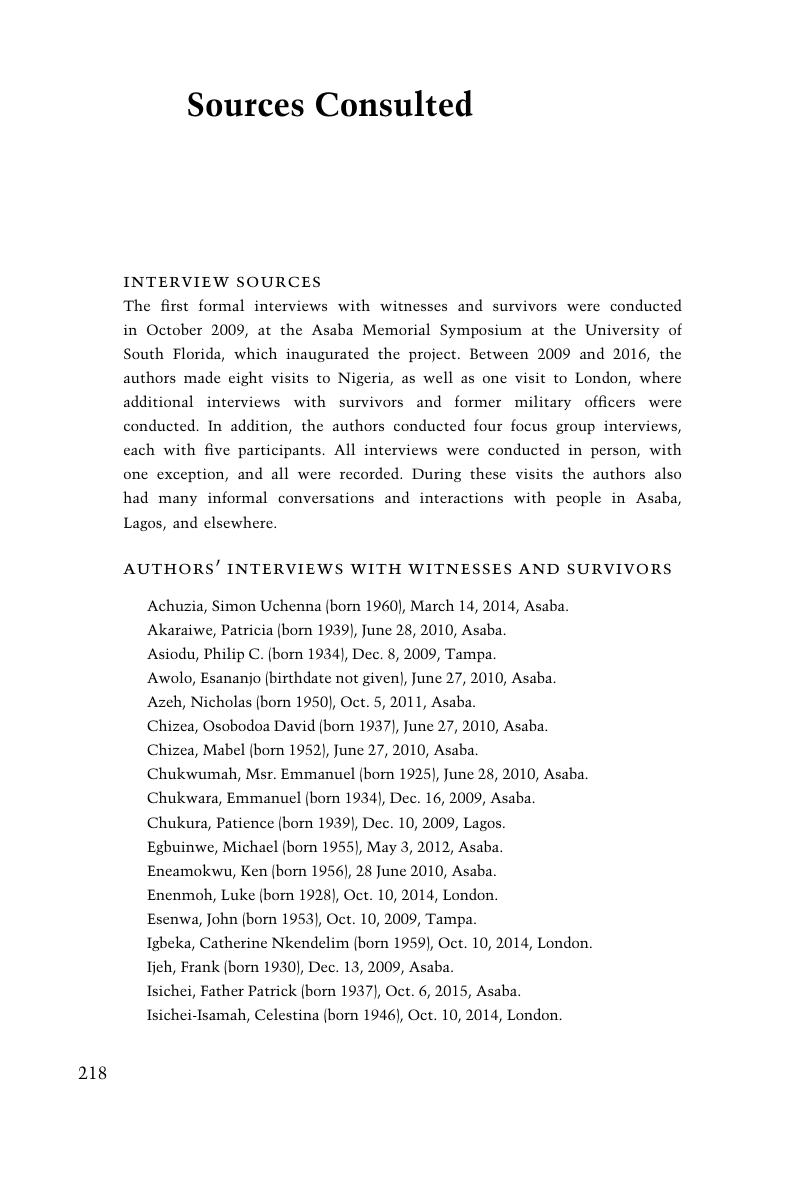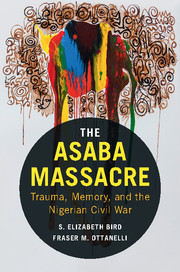Book contents
- The Asaba Massacre
- The Asaba Massacre
- Copyright page
- Dedication
- Contents
- Figures
- Maps
- Acknowledgments
- Prologue
- 1 The Road to War and Massacre
- 2 What Happened at Asaba?
- 3 Causes and Consequences
- 4 Surviving the Occupation
- 5 Reclaiming Memory in an Age of New Media
- 6 Trauma, Identity, Memorialization, and Justice
- Sources Consulted
- Index
- References
Sources Consulted
Published online by Cambridge University Press: 14 September 2017
- The Asaba Massacre
- The Asaba Massacre
- Copyright page
- Dedication
- Contents
- Figures
- Maps
- Acknowledgments
- Prologue
- 1 The Road to War and Massacre
- 2 What Happened at Asaba?
- 3 Causes and Consequences
- 4 Surviving the Occupation
- 5 Reclaiming Memory in an Age of New Media
- 6 Trauma, Identity, Memorialization, and Justice
- Sources Consulted
- Index
- References
Summary

- Type
- Chapter
- Information
- The Asaba MassacreTrauma, Memory, and the Nigerian Civil War, pp. 218 - 231Publisher: Cambridge University PressPrint publication year: 2017

